This is my Son, the Beloved; my favour rests on him.Dear brothers and sisters,
Today in the liturgy of the Church we celebrate the Baptism of the Lord. Today the voice of God proclaims: 'This is my Son, the Beloved; my favor rests on him'. Today's gospel and today's solemnity invites us to meditate about the mystery of Baptism. The Catechism of Catholic Church teaches us: "Holy Baptism is the basis of the whole Christian life, the gateway to life in the Spirit, and the door which gives access to the other sacraments". Usually Holy Baptism is the first sacrament which we receive at the beginning of our life. In our name our parents ask the Church for baptism. At this point we need ask ourselves, why does the Church accept the practice of baptizing children? They don't have a choice, children don't understand what is happening. Is it really good practice to baptize children? The Catechism of Catholic Church reminds us "Christian parents will recognize that this practice also accords with their role as nurturers of the life that God has entrusted to them". Christian parents have responsibility for the education of their children and especially religious education. At beginning of the rite of Baptism for Children there is a dialogue between the priest and the parents. The priest asks: What do you ask of God's Church for your child? The answer of the parents is: Baptism. After the priest explains the rite of baptism: You have asked to have your child baptized. In doing so you are accepting the responsibility of training your child in the practice of the faith. It will be your duty to bring him or her up to keep God's commandments as Christ taught us, by loving God and our neighbor. Do you clearly understand what you are undertaking? We need to pay special attention to the statement: "responsibility of training your child in the practice of the faith". The first teachers of the faith are the parents. They have a responsibility to transfer the faith. That is possible only if the parents believe in God and follow the teachings of the Roman Catholic Church. It is impossible to do this if I don't have faith. The parents must build a personal relationship with God and only then can this treasure be offered to their child. Sometimes in our society is very difficult be good parents. especially if parents want follow the teaching of God. Baptism is only the beginning of our relationship with God. Through Baptism we are freed from sin and reborn as sons of God; we become members of Christ, are incorporated into the Church and made sharers in her mission: "Baptism is the sacrament of regeneration through water in the word." During the celebration of the sacrament of Baptism we have a few "Explanatory Rites". These explanatory Rites help us to understand what we truly celebrate in Baptism. The sacraments are efficacious signs of grace, instituted by Christ and entrusted to the Church, by which divine life is dispensed to us. The visible rites by which the sacraments are celebrated signify and make present the graces proper to each sacrament. During the celebration the visible rites show us the graces invisible which we can fill only in our hearts. During Baptism, what visible rites can we see? How is the Sacrament of Baptism Celebrated? In the Church this triple infusion is accompanied by the minister's words: "N., I baptize you in the name of the Father, and of the Son, and of the Holy Spirit." At the invocation of each person of the Most Holy Trinity, the priest immerses the candidate in the water and raises him up again. After Baptism comes Anointing. The anointing with sacred chrism, perfumed oil consecrated by the bishop, signifies the gift of the Holy Spirit to the newly baptized, who has become a Christian, that is, one "anointed" by the Holy Spirit, incorporated into Christ who is anointed priest, prophet, and king. Explanatory rites there is also "Clothing with White Garment" Why this in the celebration? Because the person who receives the sacrament has become a new creation, and has clothed himself or herself in Christ. We see in this white garment the outward sign of his or her Christian dignity. Another explanatory rites is: the Lighted Candle, because the child has been enlightened by Christ. And every baptized person is called to walk always as a child of the light. Dear brother and sisters today we remember the Baptism of the Lord and we want remember our baptism. In our life we need this moment when we chose Christ as Lord. No longer can we depend on our parents acting on or behalf but now to be a Christian must be my personal choice. This Sunday is a perfect day for this decision, but we need to remember what Pope Benedict told us: "Being Christian is not the result of an ethical choice or a lofty idea, but the encounter with an event, a person, which gives life a new horizon and a decisive direction". Today we are called to an encounter with Jesus, about who God spoke: This is my Son, the Beloved; my favor rests on him. In sacrament the Baptism we too can be the beloved child of God.
2 Comments
Dear brothers and sisters,
Today in the liturgy of the Church we celebrate the Solemnity the Epiphany of the Lord. What does the Epiphany mean? It is a moment of sudden and great revelation. Yes today we celebrate the revelation of Christ to the World, the manifestation of Christ to the Gentiles as represented by the Magi. Today we have a few essential things about our faith and salvation which Christ our Lord revealed us. We need to remember especially that the salvation of the Lord is for all people in the world, this is what today's gospel reminds us: "Some wise men came to Jerusalem from the east" and today's responsorial Psalm: "All nations shall fall prostrate before you, O Lord". Pope Benedict in book Jesus of Nazareth teaches us: "While the prophetic content of these text expands the provenance of the figures to include the extreme west, tradition has further developed this idea of universality by conceiving them as kings from all three known continents: Africa, Asia, and Europe. The black king is part and parcel of this: in the kingdom of Jesus Christ there are no distinctions of race and origin. In him and through dim, humanity is united, yet without losing any of the richness of variety". Today we need to remember that all people can receive salvation which only Jesus can give us. In today's gospel the wise men ask: Where is the infant king of the Jews? They intend to say, where is our King? At this point we need to ask ourselves: Where is the King of my life? Who is the King of my life? The wise man said in today's gospel: "We saw his star as it rose and have come to do him homage". Every Sunday in church and every day in our life we can to do Jesus homage. What means to do homage to Jesus? Today in our life we have a different way do a homage before Jesus. "The wise man do a homage before the royal child, that is to say they throw themselves onto the ground before him. This is the homage that is offered to a divine king. The gifts brought by the wise man may be explained in similar terms. They are not practical gifts, of a kind that the holy family might have had a use for at this moment. They acknowledge the royal dignity of him to whom they are offered. Gold and incense are also mentioned in Old Testament as gift of homage that the Gentiles will place before the God of Israel". In the Church's tradition the three gifts have been thought to represent three aspects of the mystery of Christ: the gold points to Jesus' kingship the incense to his divine sonship, the myrrh to the mystery of his Passion". At this point we need ask to ourselves: Where is my gift for Jesus and Holy Family, which one is my gift, how can my gift be explained? The wise man offered gold, incense, myrrh. My gift can be the time which I offer in prayer. My gift can be time and talents which I can offer to all people. The wise men offered some very precious gifts, something special and they dedicated much of their time in the search for Jesus. They found Jesus in Bethlehem. Sometimes we are disappointed about our faith. I think the wise men were disappointed when they found Jesus not in the palaces of King Herod but in a poor stable in Bethlehem. "Their mental picture of the infant King they were expecting to find must have been very different. The new King, to whom the wise man paid homage, was quite unlike what they were expecting. In this way they had to learn that God is not as we usually imagine him to be. This was where their inner journey began. It started at the very moment when they knelt down before this child and recognized him as the promised King. But they still had to assimilate these joyful gestures internally". Today we are here because we want to kneel down before this child, Jesus Christ, king of our life. The wise men after they knelt down before Jesus and offered him their gifts they returned to their own country by a different way. ''Different way'' could mean that they changed something in their life. "The wise men had to change their ideas about power, about God and about man, and in so doing, they also had to change themselves. Now they were able to see that God's power is not like that of the powerful of this world. God's ways are not as we imagine them or as we might wish them to be". Today we are called to kneel down before Jesus and change our life. "This means that we are not constructing a private God, we are not constructing a private Jesus, but that we believe and worship the Jesus who is manifested to us by the Sacred Scriptures and who reveals himself to be alive in the great procession of the faithful called the Church, always alongside us and always before us". Jesus is present now as he was then in Bethlehem. He invites us to that inner pilgrimage which is called adoration. Let us set off on this pilgrimage of the spirit and let us ask him to be our guide. Dear brothers and sisters,
The first day of the New Year in the liturgy of the Church we celebrate the Solemnity of Mary, Mother of God. We bless God for Mary, who bore for us the Child she named Jesus, the Savior. On this special day at the opening of the New Year in the first reading from the book of Numbers we receive best wishes from God for New Year. When God spoke to Moses and said: "This is how you are to bless the sons of Israel". God starts this New Year with blessings for us. For this New Year we need to remember May the Lord bless you and keep you. May the Lord let his face shine on you and be gracious to you. May the Lord uncover his face to you and bring you peace. The third blessing concludes with the wish granting us peace. The Church listens very carefully to this voice of God today on the first day in New Year and celebrates: World Day of Peace. Pope Francis in message for the celebration of 53rd Word Day of Peace reminds us: "Peace is a great and precious value, the object of our hope and the aspiration of the entire human family. As a human attitude, our hope for peace is marked by an existential tension that makes it possible for the present, with all its difficulties, to be “lived and accepted if it leads towards a goal, if we can be sure of this goal, and if this goal is great enough to justify the effort of the journey”. Hope is thus the virtue that inspires us and keeps us moving forward, even when obstacles seem insurmountable". Speaking about hope, we can observe the life of Mary, Mother of God, she teaches us how we can improve our Christian hope. Christian hope is what we should look for every day because hope is not only for this present world but much more for the future. We need remember that especially on this day, when we look back at the end of the year at what has happened throughout the year . The New Year which is coming needs to be full of hope. Mary Mother of God and our mother teaches us to follow the voice of God and that is the best way to build up hope in our life. "The virtue of hope responds to the aspiration to happiness which God has placed in the heart of every man; it takes up the hopes that inspire men's activities and purifies them so as to order them to the Kingdom of heaven; it keeps man from discouragement; it sustains him during times of abandonment; it opens up his heart in expectation of eternal beatitude. Buoyed up by hope, he is preserved from selfishness and led to the happiness that flows from charity". The Church teaches us that God has placed happiness in the heart of every man. At this point we need ask ourselves. Has this happiness been truly placed in my heart? Or maybe I think in different way: I search for that special something which I am unable to find, This situation is explained in the beautiful words of St. Augustine: “Thou hast made us for thyself, O Lord, and our heart is restless until it finds its rest in thee.” Yes, God hast made us for Himself. We are created by God and all our life we are looking for God. This New Year which starts with God, Jesus Christ and with His Mother, Mary Mother of God, can be a good opportunity to be closer to God, dedicate our time, our talents and our needs to God. Because only in God can our heart find rest. Let me finish with another very popular and beautiful quotation from St. Augustine. Late have I loved Thee, O Lord; and behold, Thou was within and I without, and there I sought Thee. Thou was with me when I was not with Thee. Thou didst call, and cry, and burst my deafness. Thou didst gleam, and glow, and dispel my blindness. Thou didst touch me, and I burned for Thy peace. For Thyself Thou hast made us, And restless our hearts until in Thee they find their ease. Late have I loved Thee, Thou Beauty ever old and ever new. |
Archives
March 2020
Categories |
|
St. Dominic's Roman Catholic Church
National Shrine of Divine Mercy Maxwell Main Road, Christ Church, BB 15042, Barbados |
MASS TIMES
Sunday Vigil Mass (Saturday): 6:30 PM Sunday: 7:00 AM, 10:30 AM, 6:00 PM Tuesday - Friday: 6:30 AM Saturday & Holidays: 7:00 AM THE CHAPLET OF DIVINE MERCY Friday: 6:00 PM ADORATION OF THE BLESSED SACRAMENT: First Saturday of the month: 7:30 - 9:00 AM CONFESSIONS before and after Masses if possible, during office hours and by appointment |
CONTACT INFORMATION
Parish Office*: Monday: 7:30 - 12:00 AM Tuesday: 7:30 AM - 2:00 PM Wednesday: 7:30 - 12:00 AM Thursday: 8:00 - 12:00 AM; 3:00 - 5:00 PM Friday: 7:30 - 12:00 AM Tel/Fax: +1(246) 428 7677 (office) Tel: +1(246) 271 6124 (home) Email: [email protected] * Priests are available during office hours except bank holidays and day off (Monday), however we may be temporarily out of office, please call before coming. |
Copyright © 2022 St. Dominic's RC Church
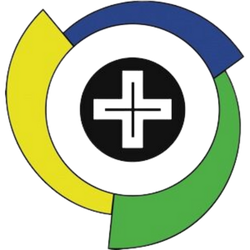
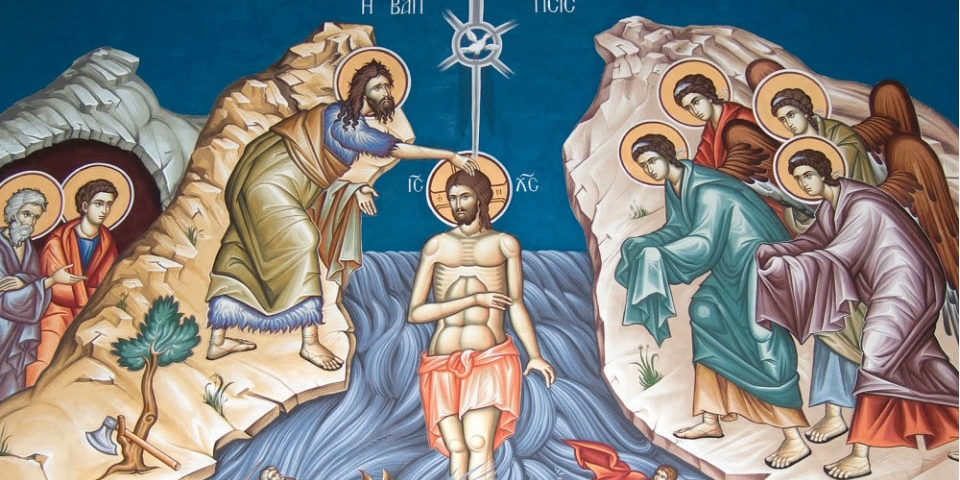
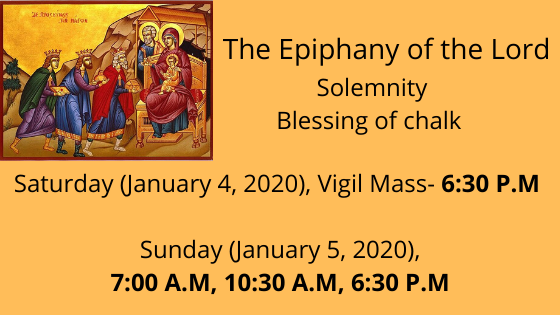
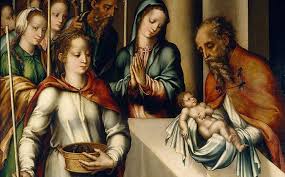
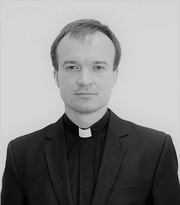
 RSS Feed
RSS Feed